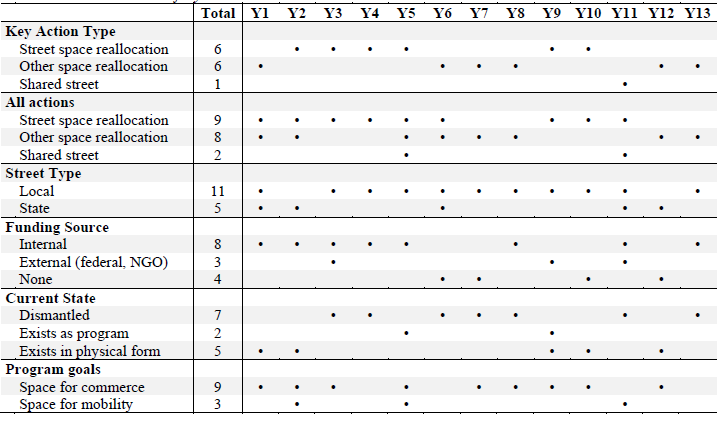During the COVID-19 pandemic, cities around the world responded to changing demands on public space by adapting their streets to support outdoor commerce, social activities, and active mobility. Such changes were instrumental tools for sustaining local economies, yet they were relatively uncommon and slow to emerge in North Carolina relative to peer states.
Previous research has identified four preconditions necessary for timely, effective local responses to disruptive events such as the pandemic: (1) relevant plans and knowledge to guide decision-making, (2) access to necessary resources to act on those decisions, (3) a culture of trust among agencies, and (4) support from higher levels of government, particularly state DOTs. Through surveys and interviews with senior staff in 27 NC towns, this study determined that these preconditions were absent from many NC towns during the pandemic.
Building on knowledge developed in this study and in prior research, we advance a set of recommendations that, if adopted and supported by NCDOT, will ensure NC towns are better able to implement timely, effective responses to future disruptive events. These recommendations are detailed in this final report and in a standalone research brief.

